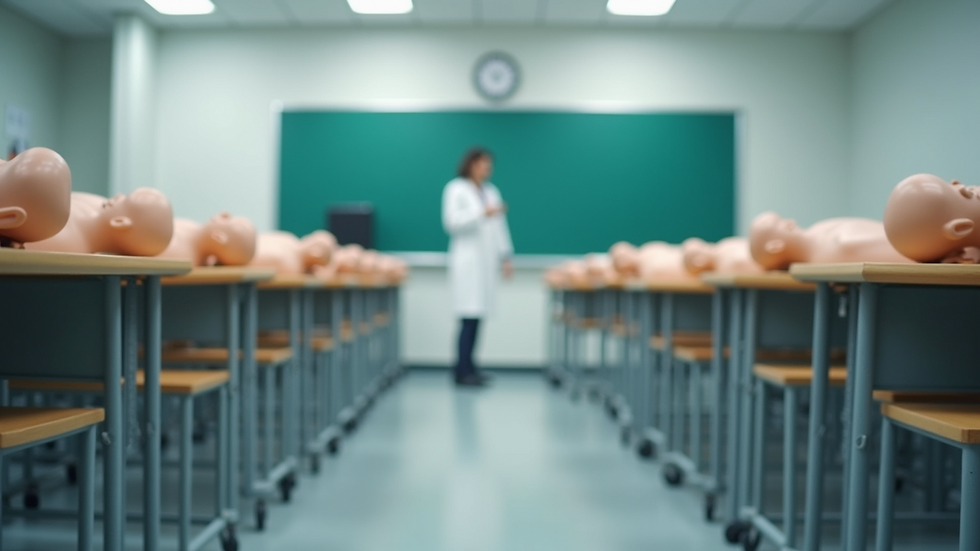The new pandemic threat: People may die because they’re not calling 911
- oliver591
- Apr 28, 2020
- 2 min read
Leaders of major national organizations - dedicated to saving people from heart disease and stroke - speak out

DALLAS, April 22, 2020 — Reports from the front lines of hospitals indicate a marked drop in the number of heart attacks and strokes nationally. But, COVID-19 is definitely not stopping people from having heart attacks, strokes and cardiac arrests. We fear it is stopping people from going to the hospital and that can be devastating.
You might think a hospital is the last place you should go now. That’s why we – the leaders of major national organizations dedicated to saving people from heart disease and stroke – feel it’s necessary to say this loud and clear:
Calling 911 immediately is still your best chance of surviving or saving a life.
It is SAFE for EVERYONE to call 911.
It is SAFE for ANYONE to go to the hospital.
Because some racial/ethnic groups, such as African Americans, are more likely to die from their heart attack and stroke, it is imperative that nothing gets in the way of anyone seeking help if they are experiencing symptoms.
We felt the need to make this declaration to clear up what may become an alarming trend.
The number of heart attacks and strokes are not necessarily declining. While ongoing research may uncover other underlying reasons for decreasing numbers of heart attack and stroke patients in hospitals, the prevailing theory is that people just aren’t calling 911.
From dispatchers to first responders, the emergency response system is trained to help you safely and quickly, even during a pandemic.
Hospitals are following protocols to sanitize, socially distance and keep infected people away from others. In fact, many now have separate emergency rooms, operating rooms, cardiac catherization rooms and ICUs for people with COVID-19, and for people without.
Although COVID-19 is certainly our most immediate threat, we must remember the ever-lurking dangers of heart disease and stroke – which, year in and year out, are the top two killers worldwide.
Approximately every 40 seconds someone in the US will have a heart attack and someone else will have a stroke.
More than 350,000 out-of-hospital cardiac arrests occur in the U.S. annually.
People at higher risk of a stroke or cardiac event should contact their providers for a telehealth visit to ensure they are managing their risk factors, such as blood pressure, and taking other precautions.
If you or a loved one experiences heart attack warning signs –chest discomfort; discomfort in other areas of the body such as your arms, back, neck, jaw or stomach; shortness of breath; and other possible signs: breaking out in a cold sweat, nausea or lightheadedness – call 911.
If you have stroke symptoms, which can be remembered with the acronym FAST: Face drooping, Arm weakness, Speech slurring or other difficulty, then it’s Time to call 911.
The bottom line is the same as it’s always been. When a medical emergency strikes, call 911. Get to a hospital.
Signed,
Robert A. Harrington, MD, FAHA, President, American Heart Association
Athena Poppas, MD FACC, President, American College of Cardiology
Michelle Albert, MD, MPH, President, Association of Black Cardiologists
Biykem Bozkurt, MD, PhD FACC, FAHA, FHFSA, President, Heart Failure Society
Andrea M. Russo, MD, FHRS; President, Heart Rhythm Society
James C. Stevens, MD, FAAN, President, American Academy of Neurology
Ehtisham Mahmud, MD, FSCAI, President, Society for Cardiovascular Angiography and Interventions
William Jaquis, MD, FACEP, American College of Emergency Physicians





Click here provide members with discounts on over-the-counter medications, vitamins, and health essentials, promoting better health management and cost-effective wellness solutions. kaiserotcbenefits.com - more details here
Click here help you find recent death notices, providing information about funeral services, memorials, and tributes for loved ones in your area. obituariesnearme.com - more details here
Click here? Many users have had mixed experiences with the platform, so it's important to read reviews and verify deals before booking. istravelurolegit.com - more details here
AV在线看 AV在线看;
自拍流出 自拍流出;
国产视频 国产视频;
日本无码 日本无码;
动漫肉番 动漫肉番;
吃瓜专区 吃瓜专区;
SM调教 SM调教;
ASMR ASMR;
国产探花 国产探花;
强奸乱伦 强奸乱伦;
代发外链 提权重点击找我;
蜘蛛池 蜘蛛池;
谷歌马甲包/ 谷歌马甲包;
谷歌霸屏 谷歌霸屏;
谷歌霸屏 谷歌霸屏
蜘蛛池 蜘蛛池
谷歌快排 谷歌快排
Google外链 Google外链
谷歌留痕 谷歌留痕
Gái Gọi…
Gái Gọi…
Dịch Vụ…
谷歌霸屏 谷歌霸屏
负面删除 负面删除
币圈推广 币圈推广
Google权重提升 Google权重提升
Google外链 Google外链
google留痕 google留痕
代发外链 提权重点击找我;
游戏推广 游戏推广;
Fortune Tiger Fortune Tiger;
Fortune Tiger Slots Fortune…
谷歌马甲包/ 谷歌马甲包;
谷歌霸屏 谷歌霸屏;
מכונות ETPU מכונות ETPU;
;ماكينات اي تي بي…
آلات إي بي بي…
ETPU maşınları ETPU maşınları;
ETPUマシン ETPUマシン;
ETPU 기계 ETPU 기계;
google seo google seo技术飞机TG-cheng716051;
03topgame 03topgame
gamesimes gamesimes;
Fortune Tiger Fortune Tiger;
Fortune Tiger Slots Fortune Tiger…
Fortune Tiger Fortune Tiger;
EPS машины EPS машины;
Fortune Tiger Fortune Tiger;
EPS Machine EPS Cutting Machine;
EPS Machine EPS and EPP…
EPP Machine EPP Shape Moulding…
EPS Machine EPS and EPP…
EPTU Machine ETPU Moulding Machine
EPS Machine EPS Cutting Machine;